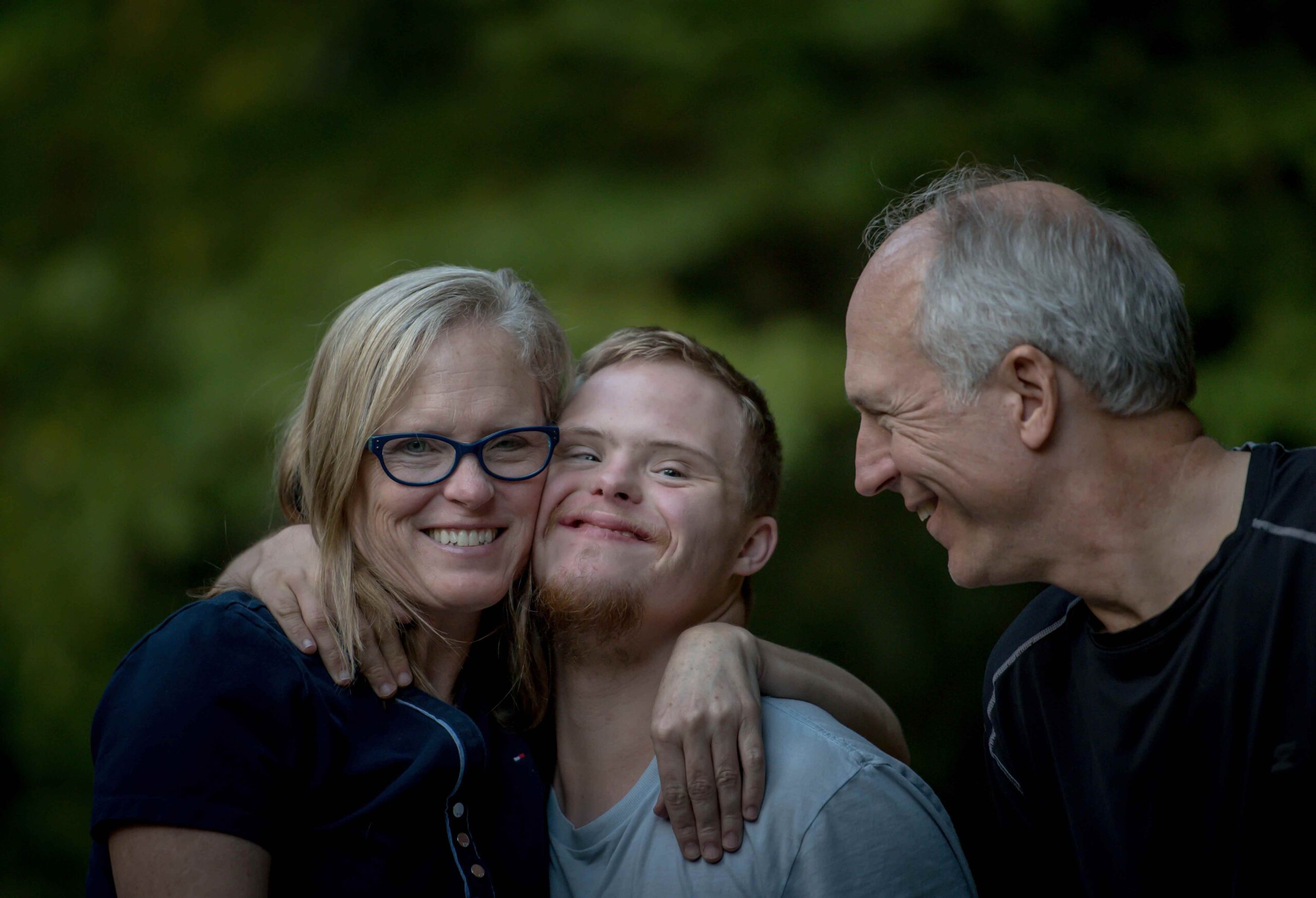
Encourage-[en-kur-ij] to inspire with courage, spirit, or confidence.
The enCourage Blog is weekly dose of encouragement in a world that is often filled with bad news. We offer life-giving entries each Monday and Thursday written by gifted women from across our denomination, the Presbyterian Church in America (PCA). You can subscribe below to have them delivered to your inbox. With hundreds of blog pieces, you can search on a variety of topics in the search bar above to read and share with friends. Christina Fox, a gifted author, serves as our enCourage General Editor. If you are interested in submitting a piece, you can contact her at cfox@pcanet.org.
Sign up for our weekly enCourage blog:
Jesus Loves Me, This I Know
STEPHANIE HUBACH | CONTRIBUTOR Does the Guinness Book of World Records have a category for “longest period of time for keeping the same item magnetized to a refrigerator?” I sincerely doubt it. However, since the first all-steel home refrigerator was introduced by General Electric in 1929, that’s only a 95-year record to contend with. So, I’d say I’m doing pretty well. My magnetized item is actually a piece of newsprint (stuck in a magnetic frame), that says in large letters, “Jesus Loves Me, This I Know.” It’s been on my various refrigerators for 32 years. How do I know the exact amount of time? I know because my son Tim, who has Down syndrome, was born 32 years ago. 32 Years Ago—Jesus Loves Me, This I Know: My Sheer Act of Faith Five days after New Year’s Day of 1992, I gave birth to my second son. That evening, I heard the words that changed my family’s life forever. “We believe your son has a chromosomal abnormality.” As it turns out, a little piece of extra genetic material can influence a whole host of changes in a human body. Some of those changes create authentic challenges (to the point of being life-threatening, such as severe cardiac conditions). Some of those changes bring forth wonderful qualities in a “super-abundance” not as fully experienced by those of us with a typical collection of 46 chromosomes. In those early days, my heart was understandably caught up with the former: the weight of the authentic challenges and the practical nature of addressing those difficulties. By choice, we did not know in advance that Tim had Down syndrome. (That’s a conversation for another day.) Nor did we know that he would have a tumultuous ride of health issues in his first year, culminating in open heart surgery at seven months old. The tsunami of new responsibilities in terms of medical care and therapies, accompanied by grief at the loss of my expectations for what I thought Tim’s life (and ours) would look like, made our infant and toddler days with our oldest son, Freddy, feel other-worldly. Sometime, early in this journey, is when the newspaper clipping became attached to my refrigerator. “Jesus Loves Me, This I Know.” Christmas vacation occurred the weeks just prior to Tim’s birth. We were all home together, as my husband had time off from work. And I specifically remember intentionally enjoying that time with Freddy—knowing (but not how much) it would change soon, with the addition of a new baby. I also distinctly recall singing a particular song with him—one that I remember God bringing to mind (from my own childhood) during that time. It was this: There is a name I love to hear I love to sing its worth It sounds like music in my ear The sweetest name on earth O how I love Jesus O how I love Jesus O how I love Jesus Because he first loved me...
He Knows Our Every Trouble
CLAIRE STREBECK | GUEST Christ identifies with all our weaknesses. Christ understands our every sorrow. Do you weep? Do you mourn? If there were one characteristic that marked Jesus' earthly ministry, it would be compassion. Over and over, he was moved with deep pity for those weeping, especially those who were disadvantaged: the widow from Nain; Mary at the death of Lazarus; the sinner-woman who wailed as she washed Christ's feet with her expensive perfume and her tears. Yet, it was not only their circumstances that provoked Jesus' emotion. Certainly, any of their conditions could have been sufficient to prompt anyone to sympathy. Still, with Jesus, each emotional response included more than mere circumstantial pity. Every time Christ was moved in his emotions, it was in response to the battle he waged with death. Jesus’ Emotional Response to Our Fallen World When Christ saw Mary and the other Jews weeping over Lazarus' death, he felt more than sorrow. John 11:33 tells us that He was "deeply moved." I was surprised to discover that the text signifies more than Jesus' sadness and sympathy–John also communicates Jesus' rage. The original Greek word used is embrimaomai, which literally translates to "being very angry or moved with indignation." Was Christ angry at Mary or those with her? Was he angry over their grief? Absolutely not. In fact, we see that he was stirred in response to their mourning, with his own shedding of tears only two verses later. It was death itself that prompted our Lord to anger. ...
Why Talk About Covenant Theology
SARAH IVILL | CONTRIBUTOR Our family attends Christ Covenant Church. The school that meets on our campus, and is a ministry of the church, is Covenant Day School. Our denomination’s college, as well as the seminary, is named Covenant. And the most recent women’s ministry leadership training conference was titled: A Covenantal Framework for Life & Ministry. Yet many of us do not understand the meaning of Covenant Theology, and therefore, do not understand why it is important to talk about it. So, I want to suggest five reasons why we should talk more about covenant theology. What Covenant Theology Reminds Us First, Covenant Theology reminds us of a perfect promise. There is no way that we could have reached out to have a relationship with the creator God. But amazingly, He has reached out to us by way of His covenant. He has promised, “I will walk among you and will be your God, and you shall be my people” (Lev. 26:12). Second, Covenant Theology reminds us that the Bible is better than any other book. It reveals the bigger picture of who God is and who we are. Through His Word, He reveals our need of salvation and of His perfect solution in the Savior. Third, Covenant Theology reminds us that Christ is the center of our story, as well as the bigger story of redemption. In fulfillment of the covenant of grace, which is founded upon the covenant of redemption, Christ accomplished the redemption that God the Father appointed, and the Holy Spirit applies (see John 17:1-26; Eph. 1:3-14; Heb. 13:20). Fourth, Covenant Theology reminds us of the implications of God’s free grace. Justification and adoption are acts of God’s free grace, and sanctification is the work of God’s free grace. Everyone deserves God’s wrath (Eph. 2:1-3). But God is “rich in mercy” and love and saves His people by grace (vv. 4-5). This salvation is not a possibility, but a certainty (vv. 6-7)...
Welcome Younger Women into Your Life
CHRISTINE GORDON | CONTRIBUTOR The first time we met, she was hosting tea in two different rooms of her African home. Tea is a big deal in Malawi, along with the relationships and conversations that surround it. At that point she was probably in her 40s, had one grown son back in the States and a middle school-aged daughter with her while she and her husband served at the African Bible College (ABC) in Lilongwe. She had been a Christian most of her life, grew up in the rural Midwest, loved marriage and children and cooking. After her husband’s army career and her many years as a nurse, they answered a call to Sub-Saharan Africa. There I met them while on a mission trip with a local church during the summer after my senior year of college. I immediately put Barbara into a small box in my mind that included 1950s moms who baked and waited for their children to come home so they could pour them glasses of milk. Of course, there was nothing wrong with women like this, but I knew I didn’t want to be one. I wanted a career, was unsure of marriage, and had decided I didn’t want children. I had been a Christian just over two years when I walked into Barbara’s living room that summer. I never would have expected how our lives would intertwine, or how much I would want to be like her. While on the ABC campus those first two weeks, I watched Barbara serve meals, ask questions, and listen to our group of about 20 students. She smiled, laughed, and patiently explained life in Africa to us. She obviously loved and enjoyed Bruce, a large teddy bear of a man who taught classes at the school. I learned that she walked around the gym on campus every day for exercise and asked if I could join her. She graciously allowed me to come for the first of what would become many shared walks. Barbara was just beginning to become to me what felt like an anchor in the changing and sometimes confusing sea that was Africa. Meanwhile, our team from the US visited villages, shared the gospel, and spent time with students. As I saw more and more of the poverty around me, (Malawi was the 4th poorest country in the world at the time), I struggled. The questions I had in the back of my mind about a good God and pain in the world were suddenly front and center. Bruce and Barbara had a meeting in their house to discuss what we had seen and felt. She moved among us offering tea, a listening ear, and comfort...

Recent Posts
- On Suffering and Hope in Romans 5
- E-250 The Best of LT 2024- Living and Leading in the Reality of God’s Covenant of Grace with Susan Hunt from the Women’s Ministry Training Podcast
- Don’t Neglect to Meet Together
- Cultivating a Heart for Evangelism
- E-249 Living Missionally: Truth for My Twenty-Year-Old Self with Courtney Denton
- Making Space to Connect Across the Generations
Archives





